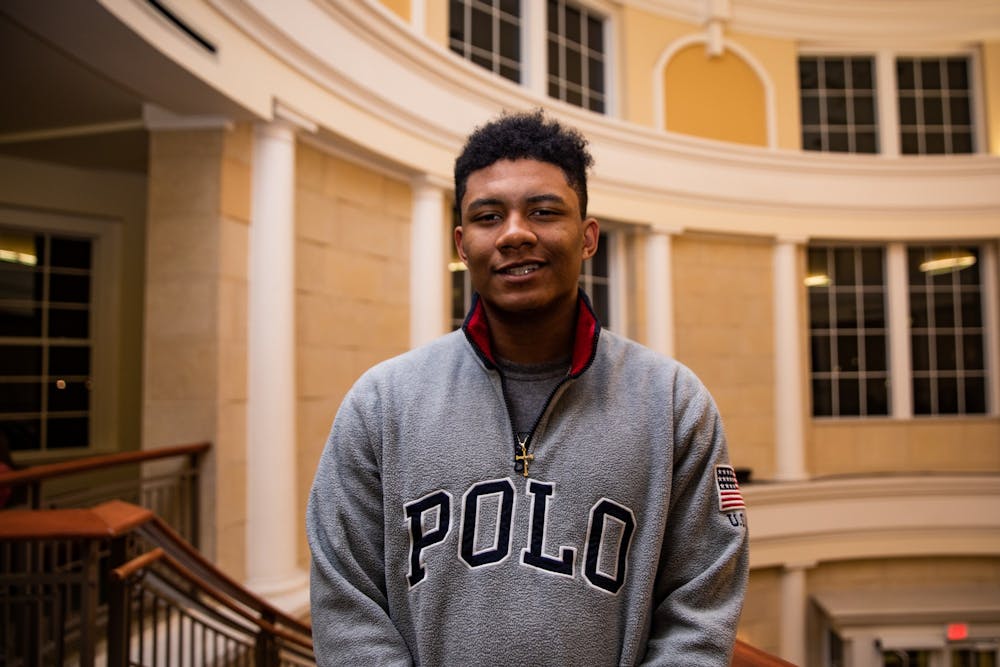In the narrative of black America, the law is often the antagonist. That antagonist, like a spiteful chameleon, comes in many colors. At times, it wears the blue of an enforcer of the law. Other times, it wears the black robes of a biased judge. Most of the time, it wears white like the papers that “black codes,” “mandatory minimums,” and discriminatory housing contracts were drafted on.
The heroes of this story are those who challenge, change or defy the law. The characters in this play are innumerable, but notable players are visionary leaders like Harriet Tubman and Huey P. Newton, erudite authors like James Baldwin and Frederick Douglas and sovereign statesmen like Barack Obama and Andrew Young.
Those Americans have overcome trials and tribulations that shouldn’t exist in the so-called “land of the free.” They’ve been subject to biased, racist treatment by mainstream discourse and oftentimes have their stories mistold by their enemies.
On the surface, Supreme Court Justice Clarence Thomas seems like he belongs with those titans of American history, but a deeper look reveals a much darker truth.
Clarence Thomas is the second black American to serve on the Supreme Court, succeeding the first, Thurgood Marshall. He’s a prolific writer, an astute academic, and is arguably the most influential Supreme Court Justice appointment of the last 40 years. The majority of President Trump’s judicial appointments clerked under Thomas, and his judicial philosophy is becoming prominent on the right. Truly, he’s enjoying a spell of influence that most black academics — especially black conservatives — would yearn for, but that is dangerous for the country.
The problem is that Clarence Thomas’ philosophy of conservatism isn’t black, but anti-black. He was the first Supreme Court justice to openly criticize Brown v. Board, a cornerstone of civil rights legislation. Even though he benefited from affirmative action, he’s tried to its doors on later generations, and worst of all, in 2013, he joined a decision that destroyed the 1965 Civil Rights Act. Thomas has also leveraged assaults on abortion, gay marriage and the rights of inmates on death row.
Even though he chastises black Americans for playing the victim card, he claimed he was the victim of a “high tech lynching” during his trial with Anita Hill.
Martin Luther King Jr. once said “Injustice anywhere is a threat to justice everywhere,” but clearly, that’s not something Thomas believes in.
Despite all of this, there’s a newfound media movement to paint the Justice’s life as a ”great American story.” At the end of last year, there was a book that aimed to interpret Clarence’s alt-right philosophy as black nationalism, and on Jan. 31st, Michael Pack released a documentary titled Created Equal: Clarence Thomas in His Own Words. The movie’s main intent is to explain the world from Thomas’ perspective, and to humanize the man whose philosophy seeks to dehumanize so many.
This attempted revival of Thomas’ image is misguided, because it’s not telling the complete story. This new flood of columns, movies and books that praise Thomas’ rough upbringing pretend as if someone who comes from oppression can’t facilitate systems of oppression for other people. The stories that emphasize his charming personality ignores that the snake in the garden was also charismatic, and generally, this movement downplays the voices of those who have drawn genuine complaints with the man for his inexcusable actions.
Instead of trying to build a revisionist view of the alt-right justice, there should both be a truthful examination of Thomas and a greater movement to bring forth lesser-known black intellectuals. This could start with figures like Ishmael Reed, Ella Baker, Roy Innis and W.E. Dubois. These were all black Americans who had different philosophies, but were united in the same page of advancing black Americans.
Ultimately, the narrative of black America is one that is beautiful. It’s full of tragedies, triumphs and characters that deserve better representation and consideration. Clarence Thomas isn’t one of them, and stories about him need to take an honest look at him before claiming that he’s a great American story.
Adonis Fryer is a freshman studying communications at Ohio University. Please note that the views and opinions of the columnists do not reflect those of The Post. Do you agree? Tell Adonis by messaging him on Instagram @adondonf.






